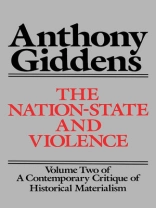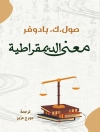The social sciences have long been based upon contrasts drawn between the ‘militaristic’ societies of the past, and the ‘capitalist’ or ‘industrial’ societies of the present. But how valid are such contrasts, given that the current era is one stamped by the impact of war and by the intensive development of sophisticated weaponry?
In setting out to address this and similar questions, this book investigates issues that have been substantially neglected by those working in sociology and social theory. Anthony Giddens offers a sociological analysis of the nature of the modern nation-state and its association with the means of waging war. His analysis is connected in a detailed way to problems that have traditionally preoccupied sociologists – the impact of capitalism and industrialism upon social development in the modern period. The result is a theory both of the institutional parameters of modernity and of the nature of international relations.
The book is a sequel to the author’s much discussed Contemporary Critique of Historical Materialism. The framework of social theory outlined in that work is here elucidated in a systematic and thorough-going fashion. The novel and provocative ideas which the author develops will interest those working in a wide variety of disciplines: sociology, politics, geography and international affairs.
Tabela de Conteúdo
Introduction.
1. State, Society and Modern History.
2. The Traditional State: Domination and Military Power.
3. The Traditional State: Bureaucracy, Class, Ideology.
4. The Absolutist State and the Nation-State.
5. Capitalism, Industrialism and Social Transformation.
6. Capitalism and the State: From Absolutism to the Nation-State.
7. Administrative Power, Internal Pacification.
8. Class, Sovereignty and Citizenship.
9. Capitalist Development and the Industrialization of War.
10. Nation-States in the Global State System.
11. Modernity, Totalitarianism and Critical Theory.
Notes.
Bibliography.
Index.
Sobre o autor
Anthony Giddens is a British sociologist who is known for his theory of structuration and his holistic view of modern societies.












